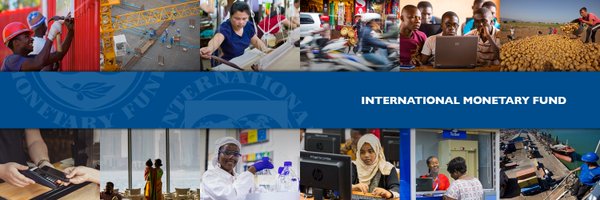 (AGENPARL) - Roma, 29 Aprile 2022
(AGENPARL) - Roma, 29 Aprile 2022(AGENPARL) – ven 29 aprile 2022 The latest IMF analysis of global economics, finance, development and policy issues shaping the world. []
[IMF Weekend Read]
Dear Colleague,
In today’s edition we focus on the IMF’s regional economic outlooks, how countries can protect the poor as they repair public finances, the economic gains from universal basic skills, capital flows, labor markets, generation COVID, global taxation, Sri Lanka, gender gaps at financial institutions, and much more.
Regional Outlooks
(PHOTO: RUSLAN LYTVYN/ISTOCK BY GETTY IMAGES)
Inequality
As policymakers begin to replenish pandemic-depleted fiscal coffers, it is critical to ensure continued support for poor households who have been most affected by the recent rise in food and energy prices, IMF Deputy Managing Director Antoinette Sayeh said at a Harvard discussion of inequality on Thursday.
She noted that, in the long run, countries need to address the underlying drivers of inequality. For instance, policymakers must consider not only re-distribution policies such as progressive income tax and social assistance to correct inequalities but also pre-distribution policies that level the playing field before people enter the labor market, for example via public education, health and basic infrastructure.
(PHOTO: LIORPT FROM GETTY IMAGES)
The pandemic uncovered education inequalities, but basic skills gaps are a longstanding challenge.
In an F&D article, published online this week, Stanford’s Eric A. Hanushek and Ludger Woessmann of the University of Munich provide a comprehensive and timely analysis of global skills gaps.
They write: “Economic development depends on the skills of each society, which means that high-quality, equitable education is paramount. On this score, it is hard to be optimistic, because the deficits are large, and recent events have not improved the chances for success.”
The economic gains from achieving universal basic skills would also be immense, the authors say, as “the present value of added world GDP that would accrue over the remainder of the century is $700 trillion, or five times current annual world GDP.”
“The key to improvement is an unwavering focus on the policy goal: improving student achievement,” they conclude.
[Cover F&D]
—————————————————————
(PHOTO: IMF)
(PHOTO: IMF)
(PHOTO: IMF)
(PHOTO: IMF)
The war in Ukraine will quicken inflation, which will remain elevated for longer than previously forecast, as shown in our latest Chart of the Week by Jorge Alvarez and Philip Barrett of the IMF’s Research Department. Russia’s invasion of its neighbor is likely to have a protracted impact on commodities, affecting oil and gas prices more severely this year and food prices well into next year.
WEEKLY ROUND-UP
—————————————————————
MARK YOUR CALENDAR
—————————————————————
[headshot]
Nick Owen
Editor
IMF Weekend Read
Thank you again very much for your interest in the Weekend Read! Be sure to let us know what issues and trends we should have on our radar.
Connect on Social

